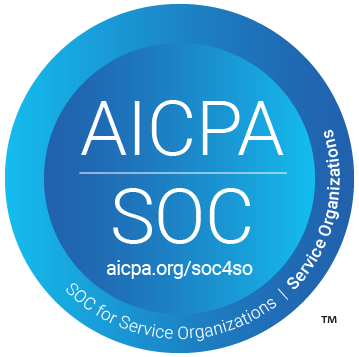What are international accounting standards? This is an important question for businesses that operate in more than one country. The international standard of accounting, or ISA, is a set of guidelines that helps companies create uniform financial reports across international borders.
This makes it easier for investors to compare the performance of companies in different countries. In this article, we will discuss the history and uses of the international standard of accounting.
What is the meaning of international accounting standards?
The international accounting standards are a set of guidelines that were created by the International Accounting Standards Board (IASB).
The IASB is an independent, international body that sets accounting standards for businesses around the world. International accounting standards are important because they help create uniformity in financial reporting across borders.
This makes it easier for investors to compare the performance of companies in different countries.
What is the purpose of international accounting standards?
There are many benefits to using international accounting standards. Perhaps the most important benefit is that it helps create transparency in financial reporting.
Companies that follow these guidelines are required to disclose certain information about their finances, which helps investors make informed decisions about where to invest their money.
Additionally, international accounting standards help level the playing field for companies operating in different countries.
For example, imagine two companies are vying for a contract with a potential client. Both companies have strong track records and comparable products. The only difference is that one company follows international accounting standards while the other does not.
A company that adheres to these guidelines is likely to be viewed more favorably by the potential client, as it will appear more professional and reliable. As you can see, international accounting standards can give businesses a competitive advantage.
In addition to promoting transparency and level-playing fields, international accounting standards also make it easier for businesses to expand into new markets.
What are the benefits of international accounting standards?
There are a number of benefits that come with complying with international accounting standards.
First and foremost, it promotes transparency and allows businesses to be held accountable for their actions. This is important for both shareholders and consumers, as it gives them confidence in the companies they are investing in or purchasing from.
Furthermore, international accounting standards level the playing field for businesses, regardless of size or location. By having a set of global guidelines to follow, smaller companies can compete against larger ones on a more even footing.
Last but not least, international accounting standards make it easier for businesses to expand into new markets. By having a common set of rules to adhere to, businesses can avoid the hassle and expense of having to tailor their accounting practices to each individual country.
What are the objectives of the international accounting standards committee?
The objectives of the International Accounting Standards Committee (IASC) are to promote the international harmonization of accounting standards and the convergence of national accounting standards with international accounting standards.
The IASC is a private sector body whose members comprise professional accountants and other experts in financial reporting from over 100 countries.
The IASC Foundation, a not-for-profit corporation, was formed in 2001 to provide long-term funding for the IASC. The IASCF's mission is "to develop, in the public interest, a single set of high quality, understandable and international accounting standards that require transparent and comparable information in general purpose financial statements".
In order to achieve its objectives, the IASC engages in a number of activities, including:
● Establishing international accounting standards;
● Providing guidance on the application of international accounting standards;
● Conducting research into, and promoting awareness of, international accounting issues; and
● Cooperating with national standard setters.
The IASC is governed by a Board that comprises representatives of a broad range of stakeholders, including investors, preparers, auditors and users of financial statements. The IASC Foundation appoints the members of the IASB.
The international accounting standards that have been issued by the IASC are commonly referred to as "International Financial Reporting Standards" (IFRS).
IFRS are designed as a common global language for business affairs so that company accounts are understandable and comparable across international boundaries. They are a consequence of growing international shareholdings and trade.
What are the different types of international accounting standards?
There are four main types of international accounting standards:
● International Financial Reporting Standards (IFRS)
● International Accounting Standards (IAS)
● SIC - Statements of Recommended Practice
● INT - Interpretations.
What is the difference between IFRS and IAS?
The key difference between IFRS and IAS is that IFRS are developed by an independent body called the International Accounting Standards Board (IASB), whereas IAS were earlier developed by the board of the International Accounting Standards Committee (IASC).
The international accounting standards that have been issued by the IASC are commonly referred to as "International Financial Reporting Standards" (IFRS).
IFRS are designed as a common global language for business affairs so that company accounts are understandable and comparable across international boundaries.
What is the rationale for the harmonization of international accounting standards?
The internationalization of business and the globalization of economies have led to a growing need for consistent accounting standards that can be used for cross-border comparisons.
The harmonization of international accounting standards seeks to remove obstacles to international trade and investment by providing high-quality, understandable, and enforceable global accounting standards.
How LiveFlow can help
LiveFlow is a valuable platform built for QuickBooks, which is designed to make it easy to create an integrated, real time connection between your QuickBooks data and customized reports and dashboards in Google Sheets. This means that you don’t have to give anyone access to QuickBooks simply to review reports – you can use pre-built templates or bring live data to any customized report you already have. This way, you only share what departments need to see. The live connection between QuickBooks and Google Sheets means that your reports will always be up to date – without any manual exports, data formatting or hands-on effort.
At LiveFlow, we provide software that helps businesses stay compliant with international accounting standards. Our software is designed to be user-friendly and efficient, so you can focus on running your business without worrying about compliance.
To learn more about how LiveFlow can help your business, contact us today. We’d be happy to answer any of your questions.




.png)





